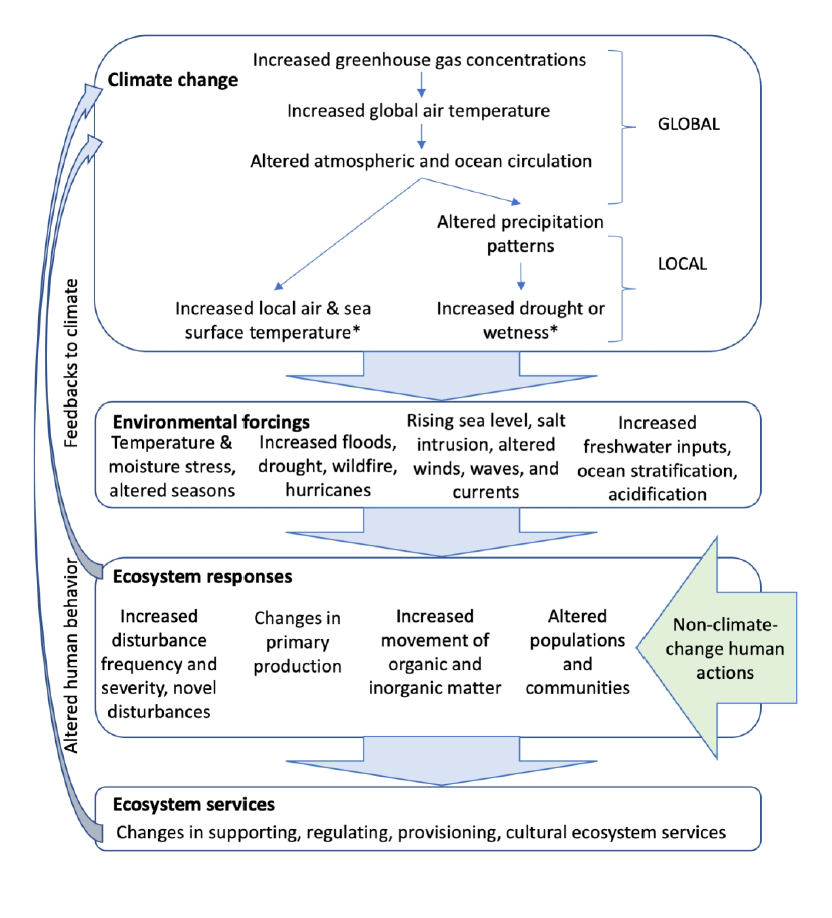We continue work on the hydrologic and biogeochemical effects of changing climate. There are several components to this work. First, we continue long-term measurements and experiments on climate change at the Hubbard Brook Experimental Forest, NH. A focus of this research is on winter climate change, including effects on snowpack accumulation and belowground winter processes. Through a research proposal funded by NSF we are testing the hypothesis that climate change is driving the northern forest toward a condition of oligotrophication (decreasing nutrient status).
I led (with Julia Jones, Oregon State University) a cross site synthesis of climate changes effects for forest and freshwater, dryland, coastal and open marine ecosystems within the NSF-funded Long-term Ecological Research (LTER) network (Figure 1). This series of five papers was published the journal BioScience in 2022. Following publication of these papers, a series of presentations and interviews summarizing this work were conducted. We organized and led three workshops on climate change and its effects at the 2022 LTER All Scientist Meeting on Grove, CA attended by over 150 scientists. From these workshops we developed proposals for additional synthesis work on climate change across the LTER network.

References:
Jones, J. A. and C. T. Driscoll. 2022. Long-term ecological research and ecosystem response to climate change. BioScience,72(9):814-826. doi:10.1093/biosci/biac021.